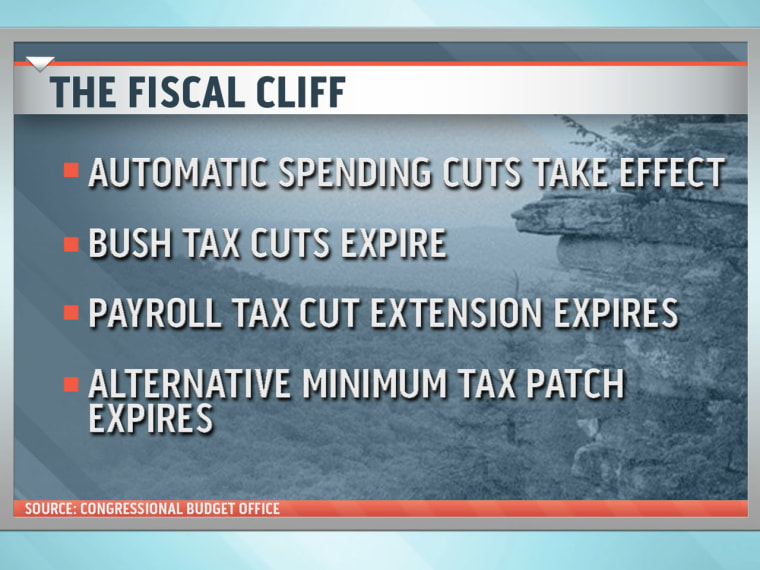Just a week after New Jersey was devastated by Hurricane Sandy, bringing what state Gov. Chris Christie called “incalculable” and “unprecedented” devastation, residents have another thing to worry about: the fiscal cliff.
It's not "just the Bush tax cuts, it’s the Alternative Minimum Tax hitting,” Andrea Mitchell said on Friday’s Morning Joe. “The most people who will be affected by the Alternative Tax Minimum kicking in, the most of any state, live in New Jersey. [It's] the people who are the middle income who make $75,000 a year and have two children,” Mitchell said. “They will have to pay $4,000 more according to the IRS and all of the tax studios.”
The fiscal cliff—a passel of tax increases and spending cuts that would take effect Dec. 31 unless Congress and the White House can agree on a fix to the government's chronic spending problem—which every year is adding a bit more than $1 trillion to the U.S. debt.
“The reality is really grim,” she said.
Watch for the Morning Joe crew's discussion on the fiscal cliff:
Visit NBCNews.com for breaking news, world news, and news about the economy
